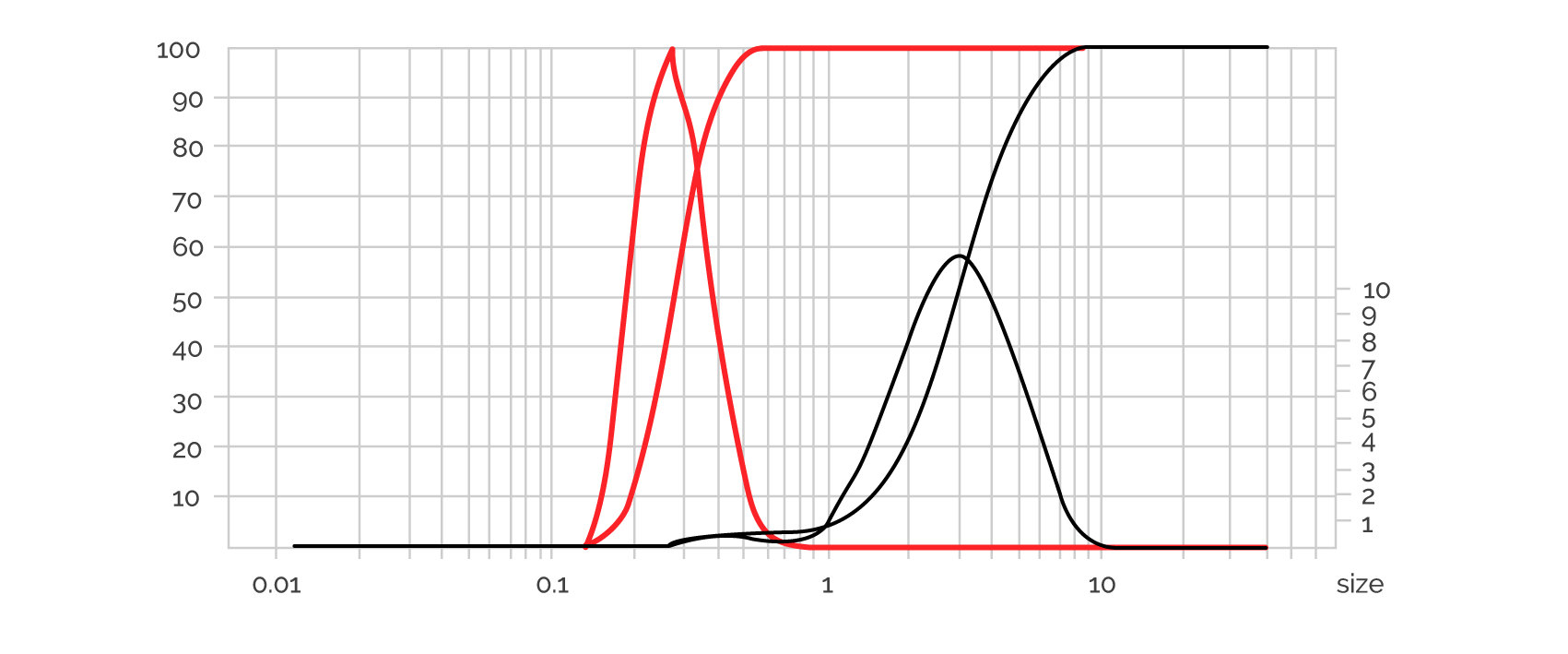The acronym ICD distinguishes the family of traditional inorganic pigments for ceramic inks, i.e., the firstborn at Inco. It is a wide range of inorganic pigments for ceramic inks – with over thirty shades in the catalog.
Inorganic pigments with a stable crystalline structure —spinels, zircons, spines, etc. —, utterly free from salts, which are characterized by high chromatic intensity and quality.
They are characterized by having a particle size distribution with average particle values ranging between 2 and 3 μm and d90 between 8-9 μm, measured with laser diffractometer.

This granulometric distribution of initial pigments makes it possible to obtain high quality ceramic ink possessing excellent filterability.
In order to obtain these technical characteristics, sophisticated compressed-air grinding mills are used – called Jett Mill – in which the grinding takes place by impacts between the same pigment particles.
Morphology and homogeneity of the particles is guaranteed. Since the pre-grinding of the ICD inorganic pigments is performed on-air, it is impossible to contaminate the pigment, which is a classic issue with other types of grinding which are performed through grinding bodies.
The result is high-quality pigments composed exclusively of the crystalline phase, which characterizes them, and of a precise and constant granulometric distribution.
Numerous quality technical checks are carried out throughout the production cycle: from the selection and control of raw materials – metal oxides – to the production of inorganic pigments; to the mixing of raw materials; calcination at temperatures between 1000 and 1400 ° C in discontinuous muffles or continuous rotary furnaces; up to the grinding and mixing of lots. Excellent quality and consistency over time.
Inco Industria Colori, has been increasing it's own productive power & custumers, for over 30 years—Thanks to new manufacturing and and sales branches spread throughout the world